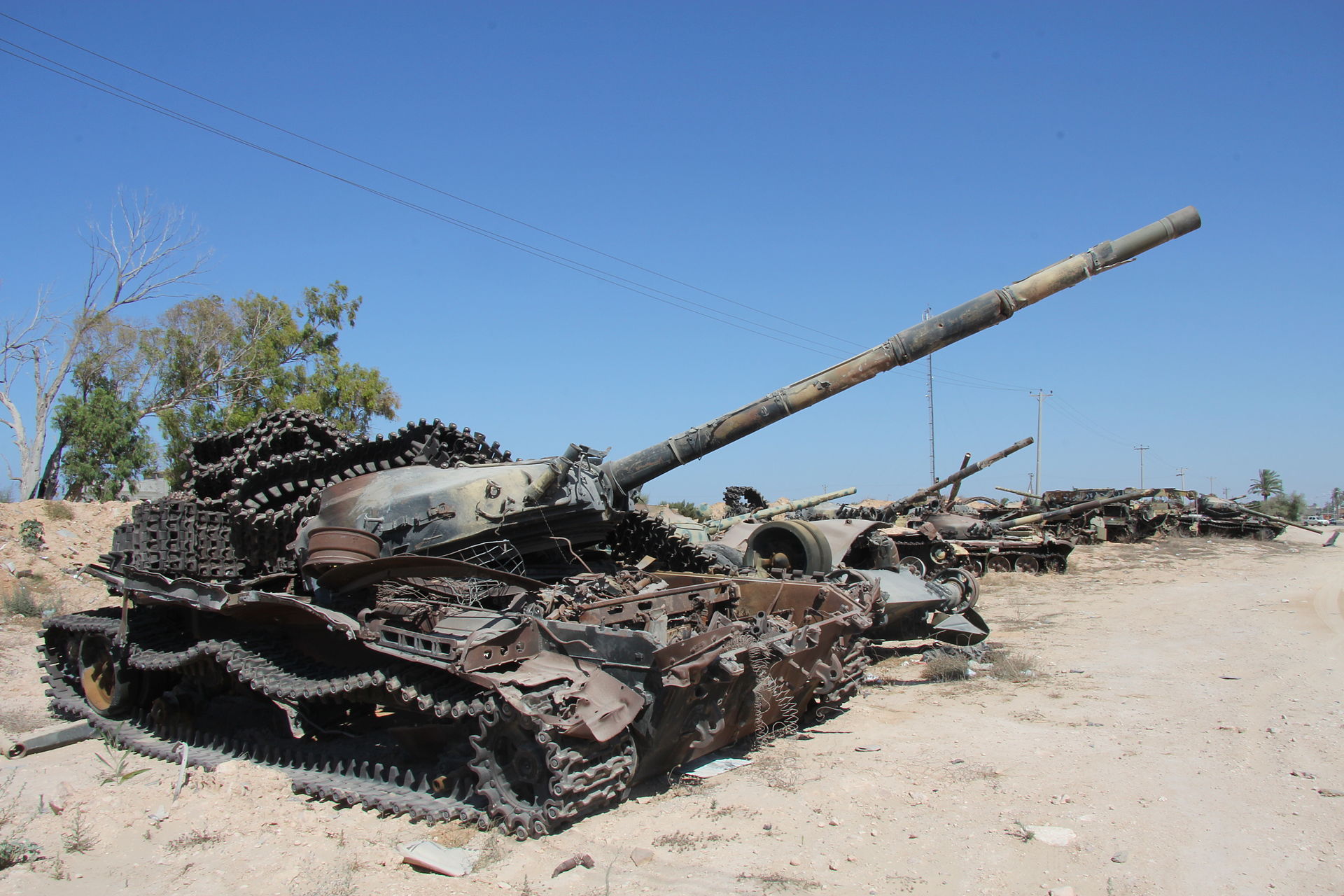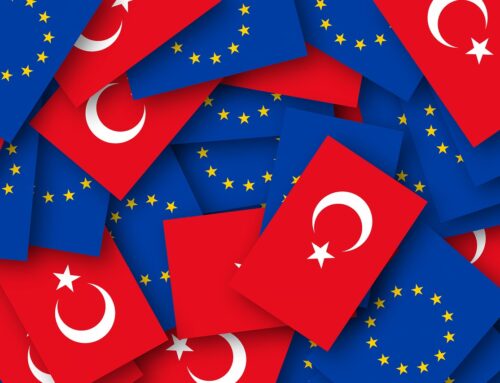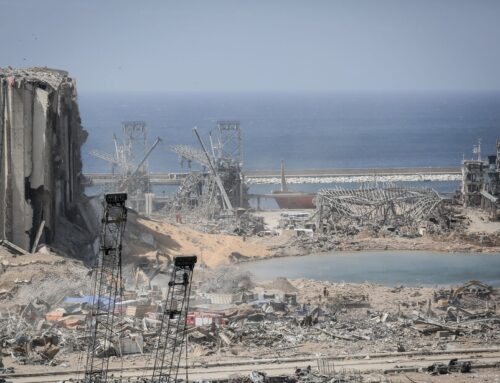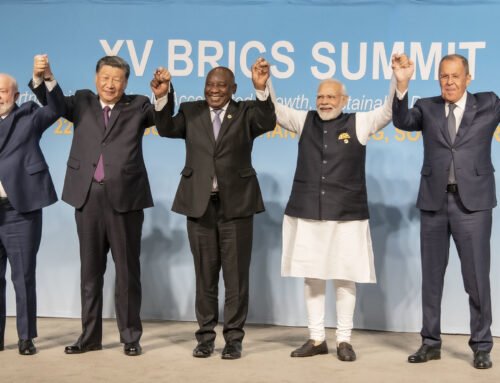PULASKI POLICY PAPERS – T. Otłowski: Libya at a crossroads
Autor foto: By joepyrek from Richmond, Va, USA, CC BY-SA 2.0

Libya at a crossroads
June 12, 2019
Author: Tomasz Otłowski, Senior Fellow, International Security and Defence Programme, Casimir Pulaski Foundation



PULASKI POLICY PAPERS – T. Otłowski: Libya at a crossroads
Autor foto: By joepyrek from Richmond, Va, USA, CC BY-SA 2.0
Libya at a crossroads
Author: Tomasz Otłowski, Senior Fellow, International Security and Defence Programme, Casimir Pulaski Foundation
Published: June 12, 2019
Pułaski Policy Paper No 4, 2019. 12 June, 2019
In early 2019, that is eight years after the fall of Muammar Gaddafi’s regime and five years since the outbreak of the second Libyan civil war, the political situation in Libya aggravated once again. On April 4th, 2019 Field Marshall Khalifa Haftar, Head of the Libyan National Army (LNA) that supports the government in Tobruk, announced an offensive against Tripoli, the capital city of Libya. The ultimate goal of the operation is to wipe out Islamist military formations and militias and to unite the country. In fact, the operation was launched against the second centre of power in Libya, the Government of National Accord. There is no denying that Haftar’s strategy has changed considerably over the last several months even though his attempt to seize the capital seems in line with his previous political and military actions. This change, however, can put an end to the series of successes of the Libyan National Army and ultimately undermine Haftar’s position as the most powerful Libyan politician. An operation “Tripoli Freedom” has increased the scope and scale of foreign involvement on both sides of the conflict. Escalating foreign participation in the Libyan civil war can eventually turn the conflict into another proxy war between regional and global powers, similarly, as it happened in Syria and Yemen.
Situation in Libya on the threshold of the battle of Tripoli
Since the beginning of the 2014 “Operation Dignity” and the fights against the Islamic radicals in Eastern Libya (Benghazi, Derna), the Libyan National Army has subjugated most of the country to the Tobruk government. Until recently, the process of taking over Libyan territories was quite sluggish. In 2018, the Tobruk government had control only over Cyrenaica in the Eastern part of the country. However, prior to the launch of the offensive against Tripoli, the Libyan National Army had seized two thirds of the entire country including most coastal areas (except Misrata, Tripoli and part of the coast between Tripoli and Tunisian border). Seizing Libya’s desert interior and its oil and gas resources was necessary to conduct the latest military operation by Haftar’s troops. Fezzan region located in the Southwestern part of the country is also very important because of the complexity of Libya’s tribal map. From the military point of view, taking over Fezzan was crucial to the operation of the Libyan National Army against Tripoli.
The Libyan National Army has seized Fezzan quite quickly and without involvement of large forces. It is even more surprising given a large number of hostile paramilitary groups operating in this area. Haftar’s troops took over towns, settlements as well as oil and gas infrastructure in the region thanks to patient but expensive policies aimed at drumming up support of local clans and tribes. These steps have strengthened political clout of Tobruk compared to the government in Tripoli. Haftar’s troops have earned a reputation as the most efficient military formation in the country by conquering and securing Libya’s ‘Petroleum Crescent’. Haftar himself rose to fame not only as an efficient military commander, but also as a skilful politician and a strategist. It is not surprising that such conciliatory and well-balanced coalitions aimed at avoiding pointless fights and victims have become one of ‘trademarks’ of the Libyan National Army and Haftar himself as far as the unification process of Libya is concerned. Marshall Khalifa Haftar and his increasingly professional military formations are perceived by many Libyans, also those living outside of Cyrenaica, as a chance to put an end to the chaos that began almost ten years ago.
Operation “Tripoli Freedom”
Ever since the United Nations backed the establishment of the Government of National Accord in Tripoli in opposition to the government in Tobruk, the former one has never been particularly popular among Libyans. Even though the Government of the National Accord still has control over some part of the country, the actual power is in the hands of local tribal militias, paramilitary formations, Islamists, and gangs involved in human trafficking and migrant smuggling to Europe. Most parts of Western Libya are controlled by local warlords whose actions do not contribute to stabilisation in the country. The local communities are dissatisfied and tired of prolonged lawlessness across the country. It seemed certain that Haftar’s ambitious plans would benefit greatly from such a state of affairs and Haftar himself could act as a saviour of Libya, as the only actor who has military capabilities to put an end to the civil war. Haftar’s popularity was also based on the strategy used by his army. To seize control over the country, the Libyan National Army did not use force, unless it was necessary to defend ‘Libya’s wealth’, that is natural resources and petroleum industry infrastructure. It is worth noting that Haftar’s policy gave him and his troops support of local communities, also by a large number of inhabitants of Western Libya.
Nevertheless, the situation has changed due to Haftar’s decision to launch an offensive against the capital. The march on Tripoli as well as fierce and bloody fights on the outskirts of the city are in direct contradiction to the previous strategy of the Libyan National Army. Even if Haftar has no intention of changing his strategy, the assault on the capital is perceived by both domestic and foreign observers as the end of well-balanced and cautious policies of the Libyan commander. An aged general is less and less perceived as a mature politician and a brilliant statesman but more and more often as an ordinary warlord.
Such an appraisal would be different if the Libyan National Army had been able to seize Tripoli as easily as it happened in Fezzan. However, the Government of National Accord and its allies were able to halt the offensive. Apparently, Haftar overestimated capabilities of his own forces and took a victory over the GNA for granted. He also miscalculated the response of the residents of Tripolitania. Despite grievous consequences of the ongoing crisis and the civil war the Tripolitanian reluctance to cooperation with the residents of Cyrenaica (and the Libyan National Army) seems much stronger than dissatisfaction with the rule of local warlords. The Libyan National Army suffered significant losses during the first fights on the outskirts of Tripoli; Haftar’s troops have not been in such a difficult situation since the fights against the Islamist militias in Benghazi.
The Libyan National Army will face a number of difficulties to seize control of the city through a military operation. It is also worth noting that maintaining control over the city will be even more difficult due to its size and the fact that the local population is reluctant to cooperate with Haftar’s troops. Furthermore, given a growing military support for the Government of National Accord, it seems certain that Haftar overestimated his strength. The Libyan National Army has no military potential to succeed in this operation unless its commanders decide to drain their own forces deployed in other parts of Libya. Currently, formations of the Libyan National Army are over-stretched throughout the country, from Fezzan in the South, to the outskirts of Tripoli in the West and the Mediterranean Coast and Cyrenaica in the East. The situation is getting more and more complex for the Libyan National Army particularly because of the rise of the Islamic State in Southern Libya.
Moreover, there are certain doubts of whether the “Tripoli Freedom” operation makes any sense as far as Haftar’s strategy and politics is concerned. Possibly, having considered the previous successes of the Libyan National Army, Haftar planned the entire operation as the way to intimidate the enemy and, ultimately, to force GNA to surrender. The other option is that Haftar wanted to scuttle the U.N. peace conference which was supposed to take place in mid-April. Haftar has explicitly opposed the conference demanding greater representation of Eastern Libya. Despite his intent, Haftar’s decision to launch an assault against Tripoli was a political and military failure. The Libyan National Army has been drawn into prolonged urban combat that consumes much resources and manpower and, furthermore, undermines Haftar’s position and reputation. Haftar’s popularity is decreasing in both Libya and overseas whereas casualties in the Libyan civil war are soaring every day. Even if Haftar does not care much about his popularity among Libyans, he should be concerned about the stance of his foreign allies and financial supporters; particularly those who have invested a lot in Haftar and his army.
Proxy war in Libya?
The establishment of the Government of National Accord in Tripoli as well as professionalisation of the Libyan National Army would not be possible without significant foreign aid and support. Both sides of the conflict have their own foreign allies and sponsors whose impact on actions and behaviour of their Libyan ‘clients’ is becoming more and more obvious. Foreign parties also provide governments in Tripoli and Tobruk with military equipment and weapons despite the fact that the United Nations has put an embargo on sales of weaponry to Libya.
Since the establishment of the government in Tripoli in 2014, the Government of National Accord has used the U.N. support to serve their propaganda campaign. It is also worth noting that thanks to the U.N. mandate the Tripoli government is, theoretically, the only internationally recognised government of Libya. It can also rely on official support of the European Union and the United States; however, such a state of affairs has no direct impact on Libya (except the cooperation with the EU as far as fighting illegal migration is concerned) but can be used by Tripoli’s propaganda machine. Even though the cooperation between Tripoli and its three major allies (Turkey, Italy and Qatar) has not been widely publicised, its importance is far greater than one could imagine. The abovementioned states have been financing the programme of the Government of National Accord for a very long time. Furthermore, they provide Libyan government with organisational and logistical support but also military equipment, especially after April 4th, 2019. Turkey does not try to keep its weapon supplies for Tripoli secret; moreover, it has become a leader in terms of exporting military heavy equipment and unmanned aerial vehicles as well as providing instructors and advisors responsible for supporting and training military formations that swore allegiance to the Government of National Accord. Significant part of Turkey’s support is also directed to militias allied with the government in Tripoli.
On the other hand, the government residing in Tobruk is politically supported by Arab states: the United Arab Emirates, Bahrain, Jordan, and Egypt. Strengthening combat capabilities of the Libyan National Army would not be possible without Cairo’s and Abu Dhabi’s support in the last two years. It seems certain that Haftar managed to get Saudi support whose financial assistance is crucial to the government in Tobruk and its military formations. Furthermore, Haftar has been unofficially supported by France and Russia which raises questions about international recognition of the Government of National Accord in Tripoli.
What is next?
Even though the Libyan National Army is not able to overcome defence lines of Tripoli forces, Khalifa Haftar rejected a ceasefire and did not agree to recommence peace negotiations which were halted by his offensive operation. His stance seems completely irrational given that the leader of the Libyan National Army received a clear political message from several states deeply involved in the Libyan conflict, including Tobruk’s major allies: France, Italy, the United Kingdom, the United States, and the United Arab Emirates. On April 4th, 2019 the abovementioned states publicly condemned the attack on Tripoli and called on to respect the peace talks backed by the United Nations. Prolonged fights in Libya’s capital can undermine Haftar’s position and image of an efficient political and military leader, and consequently force him to move to strategic and tactical defensive lines. Eventually, Haftar could also lose the entire foreign support. Such a scenario could have a detrimental impact on Libya and could lead to further escalation of the conflict. Theoretically, the Libyan National Army could be radicalised by a lack of military successes against Tripoli. Furthermore, the Libyan civil war could turn into a violent, full-scale conflict similar to those in Syria or Yemen. Haftar could be also forced to seek new allies and patrons abroad if he cannot rely on his current foreign partners. It seems certain that such an opportunity could be used by Russian diplomats to increase their influence in the region and undermine the position of the Western powers.
Conclusions and recommendations
1. Deep social and political divisions relating to historical resentments are the major reason why none of the existing powers will be able to take control of the entire Libyan territory. The Tobruk government and its key military leader, Khalifa Haftar, have no capabilities to unite Libya through military conquest of Tripolitania. Seizing the capital by the Libyan National Army would cause a long-term, disastrous military conflict in Libya, which would have a detrimental effect upon security in Maghreb, Sub-Saharan Africa as well as Europe.
2. Libyan conflict is another evidence of the erosion of the U.N. system and the fall of its authority. The Unites Nations has failed to put an end to conflicts in Syria and Yemen; the failure in Libya is just another proof that the organisation is inefficient and ignored by major international powers.
3. The international community should focus on recommencing the U.N.-backed peace talks in Libya given that there is no other efficient way to find a compromise between hostile parties involved in the Libyan civil war. The peace negotiations could succeed only on the condition that the foreign powers stop providing both Libyan governments with weapons and military equipment.
4. It is highly unlikely that foreign powers will not intervene in Libya in the near future. Libya has become another geopolitical battlefield in multidimensional competition at a regional level (Turkey vs. Arab states); a global level (West vs. Russia); as well as an ideological level of confrontation in the Islamic world (political, radical Islam related to Al-Qaeda and the Muslim Brotherhood vs. moderate approach to Islamic politics). The energy sector (control over gas and oil resources and infrastructure) as well as the role of Libya in the ‘migration business’ from Africa to Europe are other important factors that complicate the current situation in the country.
5. Once again, the European Union proves that it is unable to establish neither a common foreign policy nor a strategy towards Libya. The European Union is no longer an actor in the Libyan conflict, except some inconclusive and inefficient attempts to halt migration from Libya. Only some members or the EU, especially those with their own national goals and interests in Northern Africa, are involved in the conflict. It is worth noting, however, that they support opposing factions in the civil war.
7. The Russian Federation can become a beneficiary of the conflict. So far, Moscow has stood aside and remained neutral. Nevertheless, Kremlin will eventually decide which side of the Libyan conflict should be politically (or maybe also militarily) supported. The Russian Federation will certainly take into account its strategic interests in the region such as access to military bases etc. but also broader geopolitical interests as far as the competition with the United States and the West is concerned.
Author: Tomasz Otłowski, Senior Fellow, International Security and Defence Programme, Casimir Pulaski Foundation
Picture: By joepyrek from Richmond, Va, USA, CC BY-SA 2.0





